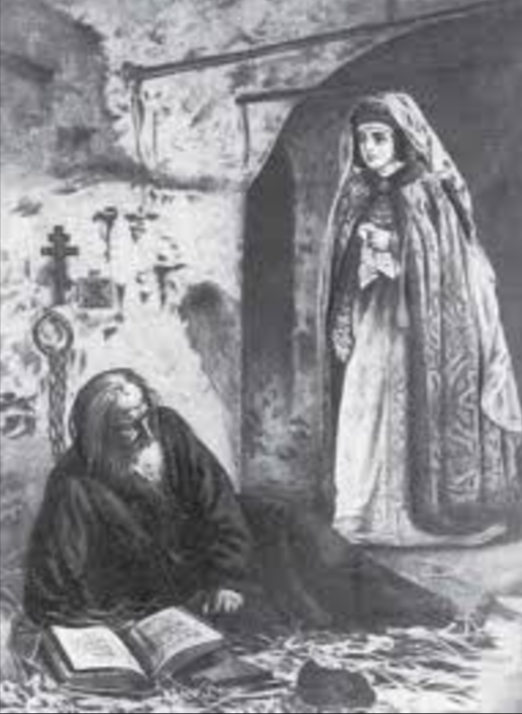a poem by Stella Nesanovich, enjoy the video exploring the life and thoughts of the poet.
Hildegard of Bingen at 80 before the prelates of Mainz, 1178
Like a quill impelled to write
I saw myself in that same vision
God imprinted on my soul at birth,
Do not presume I come to confess
sins I have not committed.
The corpse was brought by priests
and all Bingen in procession.
A black cloud hovers to hurl a storm
of cries were the man exhumed.
Bittersweet hunger for sacred bread
gnaws at those who rightly buried
the man that you call rebel.
At Rupertsburg all ritual and song
have ceased, yet your proviso stings
most vilely. Hope of holy burial is balm
while we are living, incentive
for penance and right action. Loss
of final anointing chafes me sorely.
Too, the body cloaks a soul which speaks
its life through voice. What river of night
shuts the mouths of God’s created?
Curve of shell and leaf resonate
as music and God’s Word. His Son
takes flesh again each time we sing,
chanting melodies nine choirs
of angels hum and restoring symphonia
destroyed by Adam. Fingerlike
notes reflect celestial harmony
while such divine sounds of psaltery
and voice echo in our souls
to teach us love and thus rejoicing.
Proceed with care, most holy prelates.
This interplay of cymbals God intends.
Would you give Satan a trumpet,
play the discord he adores, and halt
the leaps of souls to heaven?
Right you are to shuffle
and flip parchment. Remain
unmoved at your own peril.
Those who hold the keys of heaven
must be extremely careful lest
they close what should be open





Recent Comments